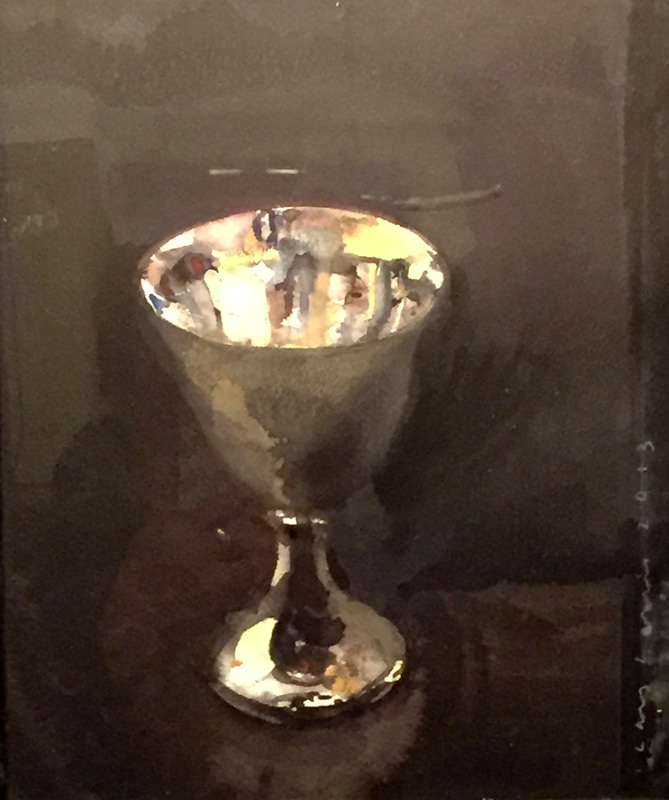So far, in class we've done more work from photos than from life. This week's homework exercise puts your understanding of seeing in layers to work on a simple 3-D object, like an apple,
Gerhard Richter
or a chalice.

Lars Lerin
(This is a watercolor, by the way)
Look around the house for an object that invites a watercolor interpretation. I find the refrigerator to be a great source of candidates. A bottle of hot sauce, a jar of mayonnaise, maybe a rutabaga. A stovetop tea kettle? Try setting up a single strong light source so the light and shadow shapes are easy to identify.
Does your object resolve nicely into just a few layers? If so, get started with a monochrome value study. Keep it very simple. No need to make the first attempts into handsome paintings. The idea is to begin seeing a series of layers; light, middle, dark.
Once you've seen your way through the single color study, make a color version with a limited palette, just one each of the primaries. In fact, make 3 or 4 versions, all increasingly simple.
Eventually, you will begin to recognize what needs to be there for the subject to have some presence. Adding the cast shadow will be very helpful. Make that simple, too, of course. Fussing with the shadow will do more harm than good.
After you've painted 5 or 6 of your rutabagas, or persimmons, the translation into "watercolor" will be realized. When you feel confident that you understand the subject in terms of layers of washes and strokes, put the model away, where you can't see it. Now paint a version or two by heart.
No comments:
Post a Comment